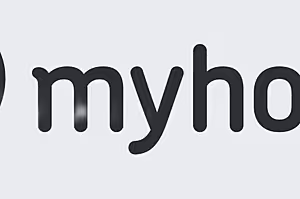Every single new enquiry we get at Irish Mortgage Brokers has the same general question, 'can I get a mortgage and if so how much?'. The day people stop asking that question is the day we close our doors!
The first thing you have to do is understand that there is an underwriting process and that banks squeeze potential borrowers ability to pay from above and below, what we mean by that is they will take tax and any embedded expenditure (like existing loans for cars, credit cards, hire purchase etc) off the top and then from below by insisting that you have a certain amount of disposable income left.
The bit in the middle is what you can use to fund a mortgage, and it is generally not allowed to be above 40% of your NDI (or 'Net Disposable Income'). With other lenders it can't be beyond a certain multiple of your income, this is furthered by a 'stress test'.
Stress testing something is basically a scenario analysis, in lending it is fairly simple, you take your assumptions of available income which we just described then you consider whether or not the person would be able to afford that loan if their interest rate was 6% (different banks use different numbers, this is just for an example). They then consider whether that mortgage would break the borrower at that rate – often by seeing if it would be above 50% of their disposable income, or more commonly be determining your residual income in that situation.
So if you could afford a loan for €150,000 using the calculations but when stress testing were left with only €1,000 to live on you don't qualify. I'll do an example using AIB calculators, there are two of them the first is a DSR (debt service ratio) the second is an affordability one.
We'll assume a person earns €35,000 a year and they want to buy a house for €200,000. The assumptions here are that they are in full time employment, they saved up a deposit, there is some proven ability to afford the loan (savings or paying rent) and nothing out of the ordinary in terms of their line of work.
They look to borrow €180,000 (90% loans are still the most popular amongst first time buyers) over 35 years (which is still the most popular term). Their gross income is €2,917 per month and their net income is €2,470. A loan of this amount would take up 41% of their disposable income according to the first AIB calculator, meaning they'd be turned down – even if they were paying more in rent and could prove that they were a good prospect.
The maximum allowable is €165,000 which is before we get into the residual income calculations. With AIB (I keep referring to them as they have the best rates at the moment and are the first port of call for many applicants) a single person has to have a residual income of €1,250 per month, a couple need €2,000 and then you add on €250 for every child.
In effect what this means is that it is incredibly difficult for married people with children and one income to borrow, that is just an observation as opposed to an accusation. It is also tough for single applicants because saving on one income as well as gross prices for a property make it difficult.
The side effect of criteria at present is that lenders want couples with two permanent jobs and good savings, there is a strong preference for people in IT (even over civil/public servants) and while the headlines always say that banks are not lending – and I support that view in general – in particular they are to certain prospects, and they tend to have different profile preferences which is why you shouldn't take a single 'no' as a 'no from everybody'.
In fact, something that keeps brokers alive in the market is when people go to the branch they have been loyal customers of for 20 years and get told to shove-off (nicely of course) when they ask for a mortgage, there are still several active lenders, the criteria and policy differs from one to another, and even successful loans take time; welcome to lending 2012 style!







